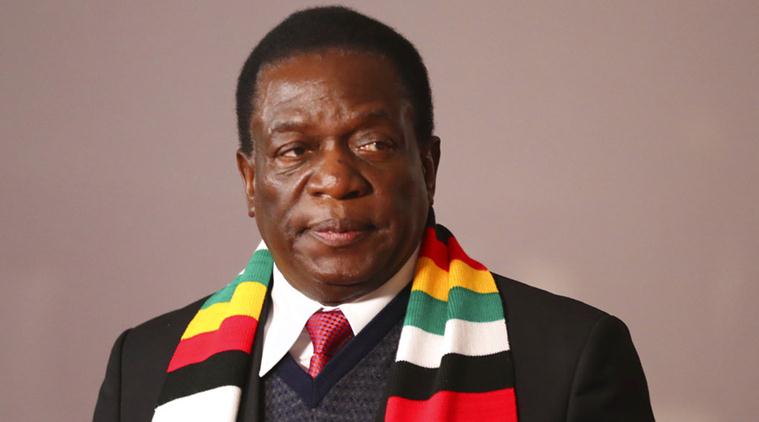A Harare-based lawyer, Frederick Nyamande, is challenging the constitutionality of the Presidential Powers (Temporary Measures) Act Chapter 10:20, arguing that it gives President Emmerson Mnangagwa too much power to make Statutory Instruments (SIs) and usurps the powers of Parliament.
In what could be a high-stakes court battle, Nyamande argues that presidential powers give the president the primarily law-making powers of Parliament to enact, amend or repeal Acts of Parliament despite the fact that Section 134 of the Constitution says the Parliament is responsible for coming up with and considering legislation.
The Harare lawyer contends that using his presidential powers, President Mnangagwa enacted the Presidential Powers (Temporary Measures) (Investments Laws Amendment) Regulations 2023 SI 153 of 2023 which created Mutapa Investment Fund an entity lacking in accountability but holding the majority of the valuable national commercial assets and interests.
President Mnangagwa issued SI 153 of 2023 exempting the Mutapa Investment Fund from open public procurement procedures, claiming that doing so undermines public accountability and control of state assets yet the Public Procurement and Disposal of Public Assets Act (PPDA Act) requires all government entities to conduct open and transparent procurement processes.
Read: Mnangagwa exempts Mutapa Fund, Opposition slams move – #Asakhe – CITE where over 20 companies recently placed under the Mutapa Investment Fund – such as TelOne, Kuvimba, NocZim, ZUPCO, and Cottco, will not be subject to Procurement Regulatory Authority of Zimbabwe (PRAZ) procedures because they will not be held accountable for how their assets are operated or disposed of in the future.
In the urgent High Court application, President Mnangagwa is cited as the first respondent while the Parliament of Zimbabwe, Mutapa Investment Fund, Zimbabwe’s Attorney General (Virginia Mabhiza) and Minister of Justice, Legal and Parliamentary Affairs (Ziyambi Ziyambi) are cited as the second, third, fourth and fifth respondents.
Nyamande is represented by Sande Legal Practitioners.
“This is an urgent constitutional application for a declaration that Sections 2(2) and 4 of the Presidential Powers (Temporary Measures) Act Chapter 10:20 (the Act) is invalid and unconstitutional for being inconsistent with Sections 2(1) and Section 134 of the Constitution of Zimbabwe,” read Nyamande’s application.
“The application challenges all the provisions of the Act which allows for the passage of different kinds of presidential powers (temporary Measure) regulations and which permit such regulations to override laws made by Parliament.”
Nyamande further seeks a consequential declaration that the SI 153 of 2023 be declared unconstitutional for having been promulgated in terms of an unconstitutional parent statute and for being in direct violation of Sections 2(1) and section 134 of Zimbabwe’s Constitution.
“The matter is urgent because I acted with urgency becoming aware of President Mnangagwa’s enactment of the Presidential Powers (Temporary Measures) (Investments Laws Amendment ) Regulations 2023 SI 153 of 2023 which were enacted on September 19, 2023 and a notice to the public given on September 29, 2023,” said the applicant.
The applicant stated that it is important that relief be granted in this matter immediately so that all the national assets in the form of the total shareholding in the parastatals listed in Section 10 of the Presidential Powers (Temporary Measures) Investments Laws Amendment ) regulations 2023 SI 153 of 2023 are not handed over to an entity which was not created by the Parliament of Zimbabwe, as the constitutional holder of State assets and finances.
“It is important that the Court give its immediate pronouncement on this critical issue before any further unlawful acts are perpetuated. It is further critical that the court must intervene in these proceedings on urgent basis as there is clear violation of the procurement legislation of the nation which is even legislated for in the Supreme law of the land,” Nyamande said.
Nyamande argues if the Court does not intervene on an urgent basis, it would have condoned illegality.
“I am advised that this Court cannot at all allow a departure from Statute worse alone in the Constitutions of Zimbabwe. As it stands I am not aware of the dealings of the Attorney General, it may procure assets and dispose of them the same without the knowledge of the public,” he said.
The applicant stated that this matter was of public importance to him as a Zimbabwean and to the generality of the public.
“The law so promulgated further cripples the functionality of the listed institutions. There is no responsible respondent in this list that may engage in a responsible debate as regards to the urgency and importance of this matter. As long as the law is extant, it affects the listed entities and the public. As long as the law is extant, it effects the listed entities and the public. I am also personally affected as a Zimbabwean,” Nyamande said in his application.
“I submit that I have cumulatively satisfied the time and consequence factor of this application to be heard on an urgent basis. I never set on my laurels. The consequences of the court’s failure to act urgently are damning to the nation at large. The court must rule.”

